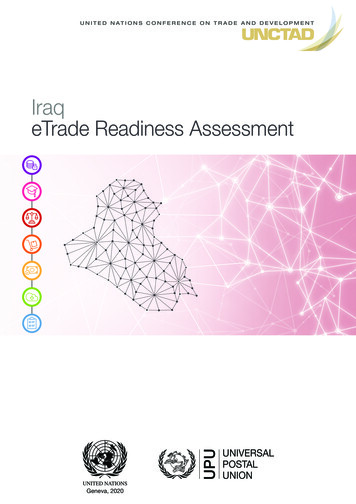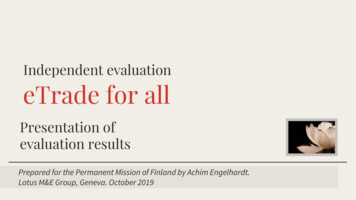
Transcription
Independent evaluationeTrade for allPresentation ofevaluation resultsPrepared for the Permanent Mission of Finland by Achim Engelhardt.Lotus M&E Group, Geneva. October 2019
Contents1. Methodology2. Evaluation findings2.1 Relevance2.2 Efficiency2.3 Effectiveness2.4 Sustainability2.5 Gender and human rights2.6 Partnerships3. RecommendationseTrade for all web platform
MethodologyData collection: Document review, on-line survey,telephone interviews, personal interviews in Geneva,theory of change validation meeting with project teamSample size: Stakeholders from all 30 organizationsconstituting the partnership, complemented by sevenprivate sector partners and all eight donorsEvaluation coverage: n 32:Evaluation's scoring approachn 32:Seven donor representatives (representing six out ofthe eight donors)24% response rate to survey: 10 stakeholders15 stakeholders from 10 out of the 15 organisationscontacted for telephone interviewsSex disaggregation: 7 female, 15 male, 10 n/a
Summary
Results
Rating: 94%RelevanceProject is clearly mandatedby the 2016 NairobiMafikiano;Relevance for MemberStates needs is high;Relevance for projectstakeholders reached 62%high to very high ratings;The project’s Theory ofChange is largely valid.The project shows very high relevance and is doing the right thing.Stakeholder perspective
Rating: 94%RelevanceDonor perspective
Rating: 94%EfficiencyThe project used resources appropriately.The multi-stakeholder approach: highlyappropriate for project implementationThe quality of monitoring modalities is high;linked to UNCTAD’s E-commerce and DigitalEconomy Programme contains a fully-fledgedM&E framework of outstandingcomprehensiveness and quality. However, theM&E framework not yet fully used due tounderfunding of the programme.Internal UNCTAD resources strongly enrich theproject: e-commerce weeks, e-readinessassessments and eTrade for women networkUse of external cooperation: 60% ofstakeholders participating in the evaluationrated the project’s facilitation function as high Project's facilitation functionto very high
EffectivenessRating: 83%
Rating: 83%Effectiveness
Rating: 56%SustainabilityThe evaluation finds uneven results concerning thesustainability of the project with significant risks forits financial sustainability.Lasting results and ownershipKnowledge created: 52% high to very highratingsCapacities fostered: 44% high to very highratingsPartner commitment to cooperation: 31% high tovery high ratings and 41% medium ratingsAmong many donors there is a perceived longterm mistrust in UNCTAD due to some of itstraditionally more radical views. This affects thefinancial sustainability of the project. Whiledonors appreciate programmatic approaches inUNCTAD, they are reluctant to provideunearmarked, more flexible funding.
Rating: 50%Gender and human rightsGender aspects and equity considerations are lessprominently addressed in the projectAlong the seven policy areas, the projectteam treats gender and statistics ascross cutting elements.Conceptually, eTrade for Women is thestrongest link of the project to thewomen economic empowerment.Project's gender lens
Rating: 67%PartnershipsThe project advanced in widening and deepeningits partner base to varying degrees.Very satisfactory results in advancing partnership with international organizationssuch as the Geneva-based UN agencies.Progress made with regional development banks and civil society organisations,particularly the WEF.Partnerships with national agencies so far comprise one agency (Estonia)Partnership engagement model with the private sector failed following the collapse ofthe counterpart association.Advancements of the partnership
RecommendationsRelevanceR 1: Donors are encouraged to continue funding eTrade for all since it providesunique value added to ecommerce stakeholders.Prioritization: very high: next 3- 6 monthsR 2: The project manager should expand outreach and make use of regionalopportunities to reach out to more and relevant stakeholders in the member states.Prioritization: medium: next 6 – 12 months
RecommendationsEfficiencyR5: The project manager should revise the project budget so that funding proposalsto donors more realistically reflect the resource requirements to meet the demandson such a project.Prioritization: very high: next 3- 6 monthsR 6: The project manager should establish SMART milestones and targets for eTradefor all. Consultations with the partners might enhance the quality of that targetsetting process.Prioritization: medium: next 6 - 12 months
RecommendationsEffectivenessR 3: The project team should develop a strategy, together with project partners, foradvancing on the output "a matching mechanism for e-commerce relatedassistance." More than one approach could be tested on a pilot basis.Prioritization: high: next 6 monthsR 4: The Director of the Division on Technology and Logistics should share theresults of this evaluation at director’s level across UNCTAD with emphasis on theproject’s implementation approach (neutral stance, multi-stakeholder approach)Prioritization: medium: next 6 – 12 months.
RecommendationsSustainabilityR 7a. The Director of the Division on Technology and Logistics should establish atrust fund for the Ecommerce and Digital Economy Programme, comprising eTradefor all and its spin off projects, and encourage donors to contribute to this joint trustfund. Till the establishment of that trust fund an “overhead” budget line could beadded to all spin off projects of eTrade for all as a means to contribute to the fundingthe platform.Prioritization: very high: next 3- 6 monthsR 7b: The Director of the Division on Technology and Logistics should share theresults of this evaluation and the mutual advantages of a more programmaticfunding approach through a donor round table meeting building on the conveningpower and credibility build by the project. Prioritization: very high: next 3- 6 monthsR 8: The project team should address the project’s funding pipeline with partner’sduring the next scheduled project event. Expectations should be carefully managedand further synergies explored
RecommendationsGender and human rightsR 9. The project team should include at least one gender indicator and one humanrights indicator in the project logframe (complemented by SMART milestones andtargets) and communicate this logframe revision to all project partners.Prioritization: medium: next 6 - 12 monthsPartnershipsR 10: The project team should seek ways to establish formal partnerships with theprivate sector though a business association model rather than individual companiesto maintain the project’s neutrality.Prioritization: high: next 6 months
Independent evaluationeTrade for allPresentation ofevaluation resultsFor further information please contact: Achim Engelhardt. Lotus M&E Group, Geneva.Achim@lotus-group.org
to donors more realistically reflect the resource requirements to meet the demands on such a project. Prioritization: very high: next 3- 6 months R 6: The project manager should establish SMART milestones and targets for eTrade for all. Consultations with the partners might enhance the quality of that target-setting process.
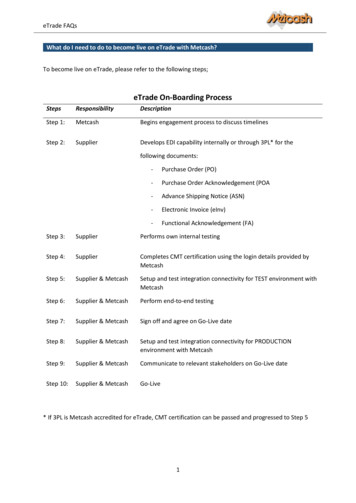
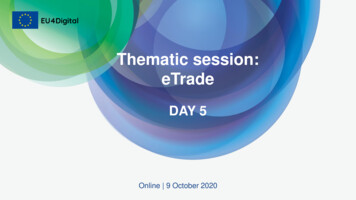
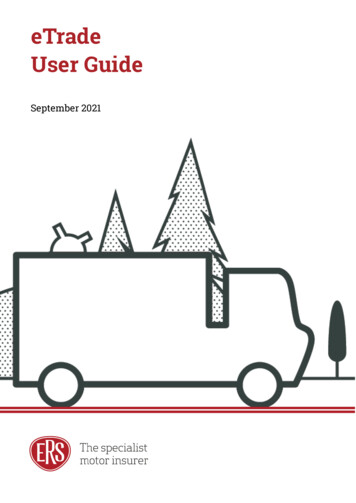
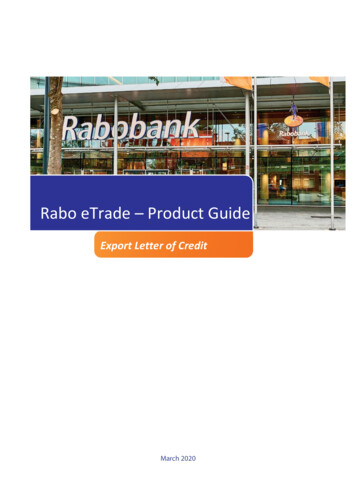

![Kenya: eTrade Readiness Assessment [ADVANCE COPY]](/img/24/dtlecdc2022d2-en.jpg)
